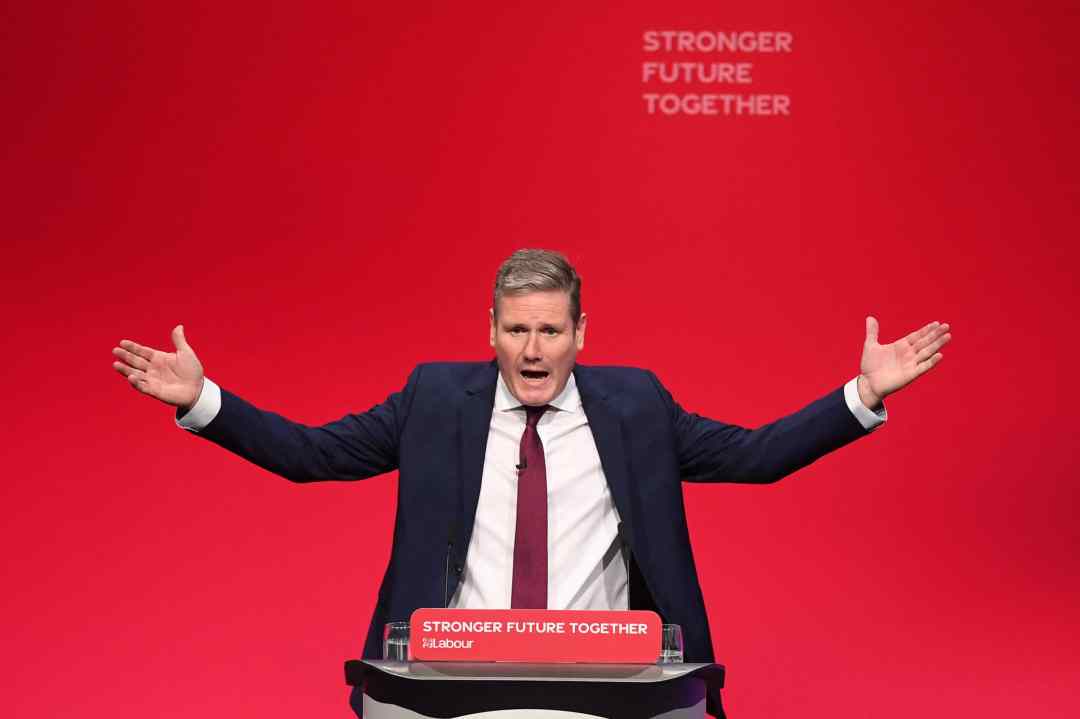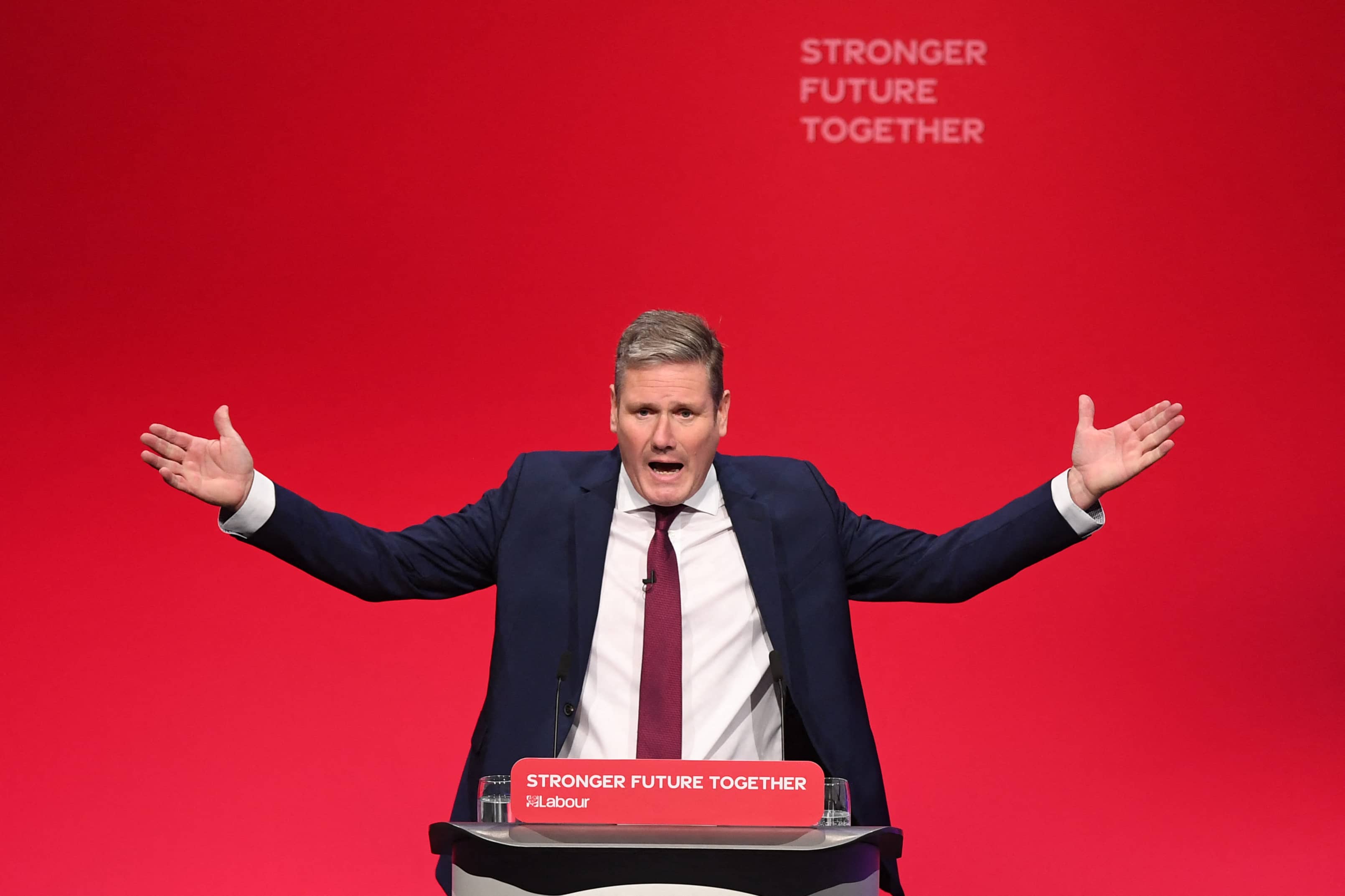Keir Starmer gave a very long speech on the final day of Labour conference. It lasted an hour and a half, and had 17 standing ovations. But it will largely be remembered as the speech in which the Labour leader was repeatedly heckled by the hard left.
These heckles worked hugely in his favour and made the speech all the better. Those shouting from the conference floor largely chose to do so at very inappropriate moments, including when he was talking about his mother being seriously ill in intensive care.
The heckles worked hugely in his favour and made the speech all the better
Many other delegates turned on the woman who repeatedly shouted about the need for a £15-an-hour minimum wage, shouting ‘shhh!’ and ‘shame!’ at her. If this was an organised campaign, its ringleaders will be hugely disappointed, or lack a grip on reality. That subsequent shouts included ‘free Julian Assange!’ and ‘where’s Peter Mandelson?’ underlined that these delegates were perhaps not the people whose opinion Starmer needs to worry about. He confronted them early on, saying: ‘At this time on a Wednesday, it’s normally the Tories that are heckling.’ Then, in response to more shouts, he received not one but two standing ovations for saying ‘shouting slogans or changing lives, conference!’
As I wrote before the speech, Starmer had prepared for such interruptions with some ripostes. Perhaps he had also prepared by making the first half of his speech, which saw the vast bulk of the shouting, about his back story, before moving onto policy announcements and statements about what Labour stands for later on.
The theme of the speech was the pride of the toolmaker in getting a job well done, taking inspiration from both his father and a WH Auden line about ‘how beautiful it is, that eye-on-the-object look’. He finished by telling the hall that ‘work, care, equality, and security’ were ‘the tools of my trade and with them I will go to work’.
He tried to unpack those different ‘tools’ with a number of policy announcements. The most eye-catching was a pledge on mental health, that Labour would ‘guarantee that support will be available in less than a month’ and that the party in government would ‘recruit the mental health staff that we need, over 8,500 more mental health professionals supporting a million more people every year’. There was no reference to how this would be possible, given the current eye-watering waits for treatment that many people with even quite mild illnesses face.
He also had a striking passage in his speech where he pitched Labour as the party of law and order again. He had been introduced by Doreen Lawrence, and went on to talk about John and Penny Clough, whose daughter Jane was murdered by her abusive partner. It was an extremely effective and moving section. He then promised that ‘under my leadership, the fight against crime will always be a Labour issue’.
There were tributes to Labour’s time in government, and not just when he listed the achievements of those years. That list in itself was a homage to Gordon Brown’s 2009 conference speech where he whipped the party into a frenzy with his long rundown of what the government had done. Starmer also made similar noises as Tony Blair did in 2006 when he told members that ‘if we can’t take this lot apart in the next few years, we shouldn’t be in the business of politics at all’.
That Starmer wants to talk like someone from the Blair and Brown years, that he wanted conference to applaud the armed forces and to agree with his statement that ‘we here in this conference hall, we are patriots’, shows that he wants to turn his party away from the past 11 years of opposition and he doesn’t mind who heckles him as he goes. It has been a rough conference for him, but with this speech he has shown that much of the roughness was necessary to get back into the place where a Labour leader can proudly talk about the party’s past and future.








Comments